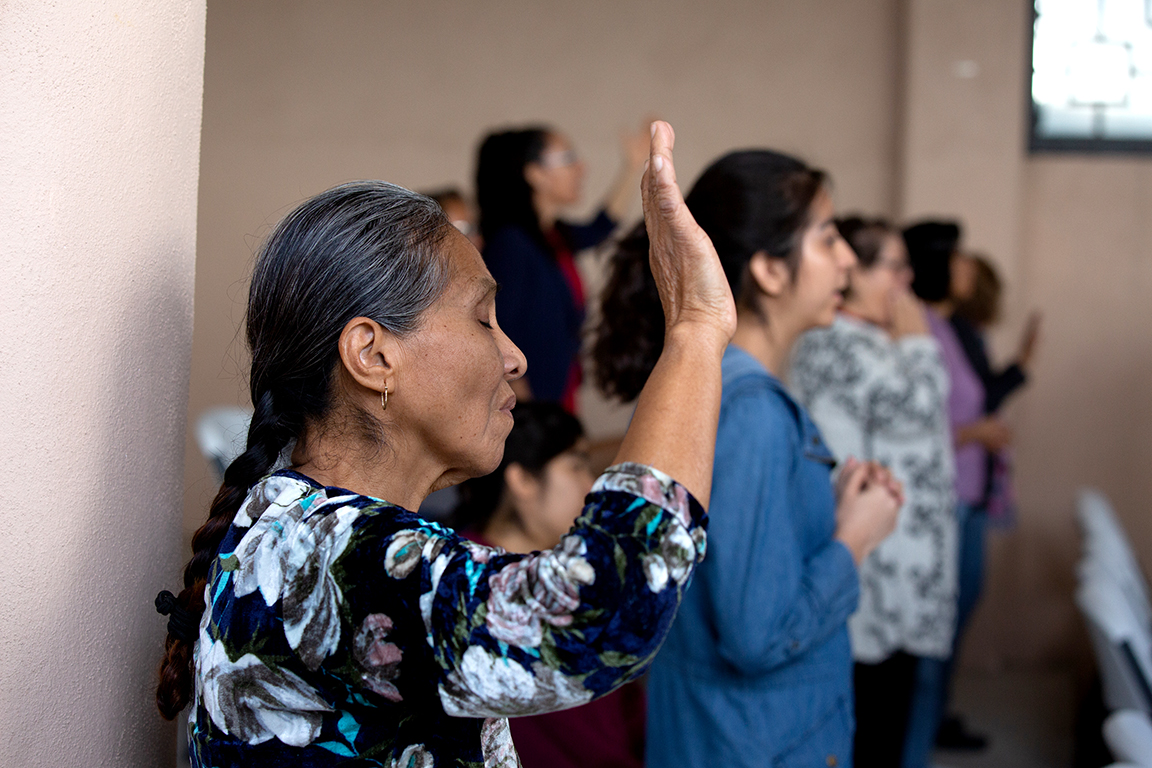
Becoming a Missionary, Missions Resources
How to Raise Missionary Support During COVID-19
July 8, 2020
by admin

Support raising is one of the most daunting parts of becoming a missionary — especially during an economic downturn. But according to TEAM stewardship coach Jennifer Nickels, it doesn’t have to be. With the right perspective, she says, raising missionary support can actually be a blessing. We sat down with Nickels to find out how to view support raising as a ministry and do it successfully in the midst of a global crisis. This interview has been edited for length and clarity.
Raising support is often one of the most intimidating parts of becoming a missionary. Why do you think that is?
I think a lot of people, they walk into this process with a lot of preconceive ideas … and they may fear just asking people for money. It can make you feel vulnerable. I think overall, it’s just a matter of recognizing that raising a partnership team should not be considered a daunting or intimidating task. It’s actually a privilege and it’s a blessing. You, as the missionary have this amazing opportunity and privilege of asking people to join in the Great Commission alongside you. Raising support and raising your team is part of your missionary calling. So I would just challenge you to take some time to reframe your thinking and your perspective and your attitude.
What are some practical ways to shift your perspective?
I think one is taking some time to just look at Scriptures, there’s a lot of great Bible studies out there just on helping you think through raising finances. But also what it looks like to have a partnership team support you in full-time ministry. There’s a lot of great books out there. One that I highly encourage is Henri Nouwen’s Spirituality of Fundraising. It’s just a great book that helps you think through how this is a ministry and what this looks like.
I also just encourage people to have a prayer team. Have some people who are not only prayer warriors, but who maybe you can bounce this idea off of and kind of dig deeper together with as you think through it a little bit more.
In ideal circumstances, how do you advise people to raise missionary support?
First of all is just having the right perspective. I think when people enter into this time and their perspective is off, or it’s not biblical, or they’re just really dreading it, that comes across, and people sense that in you. So taking that time to just back up and to really have a strong biblical foundation, that, ‘Hey, this is a ministry I get to share with people what God’s doing in the corner of the world I’m called to!’ So that brings it to that next point of being personal. I think when you’re asking a very important question, you’re asking people to participate in the great commission alongside you, this is a big thing, and it’s an exciting thing!
So take the time to meet face to face. Obviously this is pre-COVID suggestions, but having those times where you can be very personal. Meet with people, take them out for coffee, have them to your house for dessert, be at a small group meeting, those kinds of things.
How can missionaries continue raising missionary support during times of social distancing?
It’s a little bit harder at the moment, as far as face to face. But I would say currently, there are a lot of great things that are working. I know currently, missionary appointees are finding ways to actively raise support and have meaningful conversations with potential donors. It can be hosting a Zoom call with either your missions committee or a small group, or just one-on-one or with another family that you want to interact with.
As countries start to open up, maybe you can meet someone in their front yard and we can social distance from the porch to the driveway. I think you can be sensitive to what people are comfortable doing. But there are a lot of ways that you can reach out and meet with people. Social media platforms have also been helpful for people to do things like hosting a live Facebook video to just share updates on your ministry and what’s happening, where you are.
How can missionaries sensitively ask for support during times of economic hardship, such as COVID-19?
I think what you said right there, being sensitive is key. I think right now is a great time to be sensitive and discerning. Use prayer and wisdom as to who you’re talking to and who you’re asking. One thing I encourage people to do if you’re thinking of reaching out to someone is to think about how you know that person. Are they in one of those categories that has been financially impacted? If they are, now’s the time to probably just call and check in, “Hey, how are you doing? Can I pray for you?”
However, as you look at that list of people that you want to reach out to, there’s definitely people on that list who have been impacted by this, but not impacted financially. So they probably still have their jobs, just got a stimulus check, tax return, things like that. Those are people that you could still reach out to.
Is there a way people who have been impacted by the economy can still support missionaries, even if they can’t manage financially?
There’s a lot of ways that people can still be involved. Obviously forming prayer teams are key. They can be a part of that, hearing the ministry, praying for the ministry, being involved in it. I guarantee there’s people, probably on your newsletter list or on your kind of donor list or potential donor list who have a lot of great skills and ministry skills who they’d love to use to help you. So there’s probably people who have the gift of hospitality, who would love to help you think about, Hey, as things start to open up, how can we host an event for you or on your behalf? There’s probably some people who are very organized, detailed people and are great writers. If you’re not a great writer, having someone who is help you with newsletters. Or, maybe someone’s just got a great gift for helping you put together videos.
So it’s just a matter of having conversations with people and asking and knowing who they are and kind of seeing where their gifts lie and how they can help you.
What do missionaries do if their timeline is uncertain? How do they still raise support when there are a lot of unknowns?
I think having a lot of unknowns is part of missionary life, so this is great training ground. But do continue to communicate and communicate well. I always suggest at least a monthly newsletter, and on top of that, if you are living in places where you can have social media to be active as updating people on that. Also if you’re in your home country you can call people, talk to people, Zoom. Even if you’re living overseas, you can still do those things. So I think just communicating well with people. If you’re in that process where you’re initially raising support and trying to get out by a certain date, remind people that this has not been canceled, you’re still called to this.
If you had hoped that you could leave this summer and it doesn’t look like that might be happening, just communicate I’m still raising support, because I knew I need to be at a 100 percent by, you know, and put a date there. Some of those timelines might’ve been pushed a little bit, but that doesn’t mean that it’s not going to happen.
Is there anything you would like to add?
I would say just keep that perspective that God is in control, and He’s called you to this, and He’s called people to join your team as a part of it. And that partnership development hasn’t stopped because of COVID. There are a lot of people who are right now raising very successful partnership teams, and they are making meaningful connections with people in this process. So know that it is being done, it can be done. It may look and feel a little different than maybe what you originally thought it would or have done in the past, but know that it is happening and that it is still working. And that God is still moving.
Watch Jennifer’s entire interview at our Facebook page.
The deeper you get into support raising, the harder it is to keep track of everything — the phone calls, the letters sent, the people who said they would donate (but haven’t yet!). With our missionary support tracker, you won’t miss a beat. Download it for free today!

